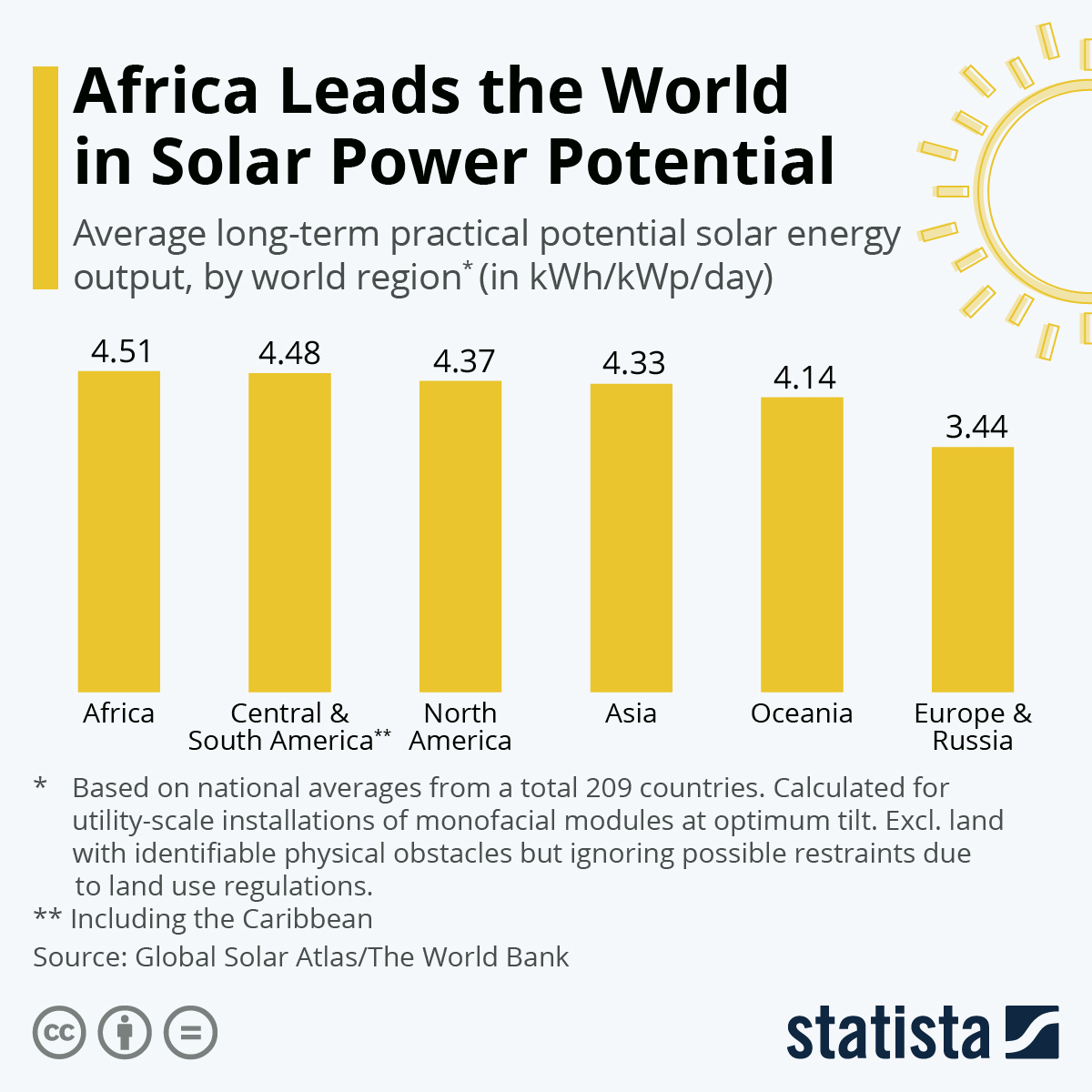Figures from the Global Solar Atlas for The World Bank, as analyzed by Statista, reveal the average potential of solar energy around the world and as this infographic shows, Africa is out in front. When combining the average long-term practical yield of a utility scale solar energy installation in each country, Africa's 4.51 kWh/kWp/day is ahead of second-placed Central & South America's 4.48, while North America is further behind on 4.37.
The assessments "exclude areas due to physical/technical constraints, such as rugged terrain, presence of urbanized/industrial areas, forests, and areas that are too distant from the centers of human activity", but do not consider “soft constraints, i.e., areas that might be unsuitable due to regulations imposed by national or regional authorities (such as conservation of cropland or nature conservation)".
To put the figures in context, roughly 20 percent of the world population lives in 70 countries which possess "excellent conditions" for solar power - meaning long-term output exceeding 4.5 kWh/kWp per day. On a world region basis, only the country's in Africa average together above this threshold. A lot of this potential in the less developed countries of Africa is still untapped, but as the source states, represents "a unique opportunity to provide affordable, reliable, and sustainable electricity services to a large share of humanity where improved economic opportunities and quality of life are the most needed".





















